Sternum Piercing: Types, Aftercare, And Jewelry
Dive deep, get inspired, and flaunt your style with this unique piercing.
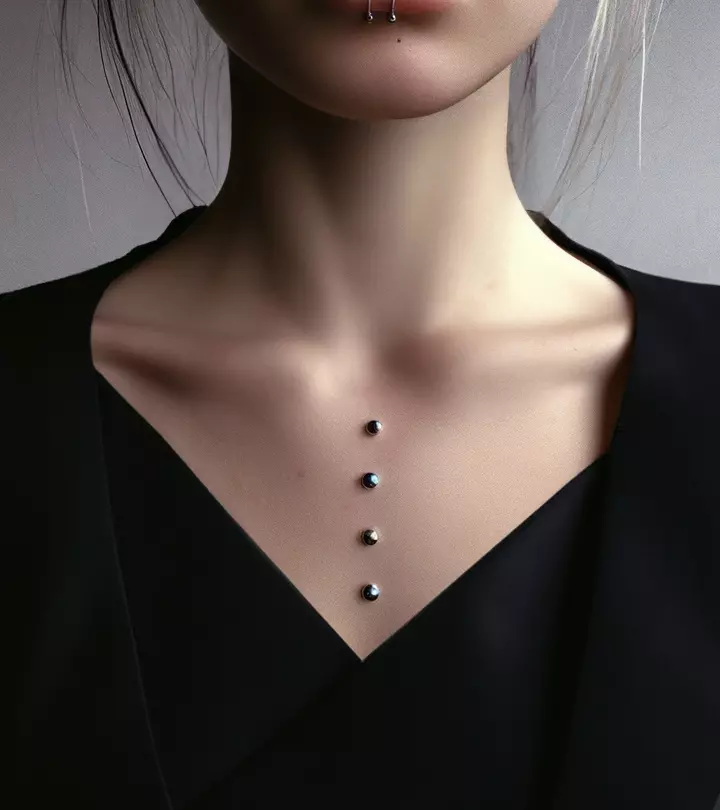
Image: Created with Dall·E
If you are looking for a cool and edgy way to spruce up your look, consider a sternum piercing. It is a type of surface piercing that goes through the skin on the sternum, the flat bone in the center of the chest. This horizontal piercing typically involves a barbell or surface bar being inserted just below the collarbones. While sternum piercings are visually striking and add a flair to your style, they require careful consideration due to the potential for friction in the area and the risk of displacement and migration. Therefore, ensuring proper aftercare is essential to prevent complications. Keep reading this article to learn more about sternum piercing, how painful it is, the types, aftercare, and more. Scroll down to know more.
 Piercing Guide: Sternum Piercing
Piercing Guide: Sternum Piercing- Placement: Horizontal piercing through sternum skin, often with barbells or surface bars.
- Best Jewelry: Surface bars and anchors, barbells, and rings.
- Cost: $50 to $120
- Pain Level: Medium
- Healing Time: 6 to 12 months
In This Article
What Is A Sternum Piercing?
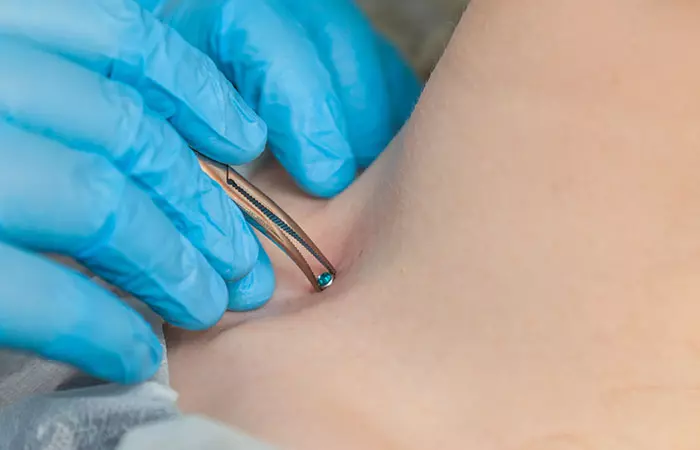
A sternum piercing, as the name suggests, is a trendy way to enhance the central chest area, on the skin covering the sternum bone. This modern piercing technique uses a hollow needle and special jewelry like barbells or surface bars, strategically positioned between the cleavage and the neck. The placement options in this type of surface piercing offer a range of stylish choices for personalization. Sternum piercings allow people to boldly express themselves with the help of unique and fashionable jewelry options. However, due to the chest’s constant movement and the risk of clothes getting snagged on the piercing, careful aftercare is vital for quick healing.
A blogger shared her experience getting a sternum piercing in a blog post. She wrote, “I decided on the sternum because I felt it was an area that I could be most cognizant about and that was generally used and abused much less than the rest of my torso, stomach, legs, arms, etc (the beauty of a surface piercing is that it can go anywhere). I also wanted a bit of skin I could easily hide, or grandly exhibit (i)”.
Learning about sternum piercing naturally makes you wonder about the pain. Know about its pain level in the section below.
Key Takeaways
- Sternum Piercing is the perforation of the central chest bone skin, often done horizontally with jewelry like barbells or surface bars for individual ornamentation.
- Prioritize careful aftercare for sternum piercings, incorporating practices like using saline compress for cleaning and gentle care, ensuring a trouble-free and smooth healing journey.
- Choose reputable piercers and premium materials, like titanium or surgical-grade stainless steel, for a positive sternum piercing experience.
Is A Sternum Piercing Painful?
The pain associated with a sternum piercing is generally subjective and differs from person to person, depending on individual pain tolerance level. Some individuals may experience mild pain and discomfort during the piercing procedure, describing it as a brief pinch or pressure. However, others may find the sensation a bit more intense. Additionally, it is common to feel a bit sore and notice some swelling in the area during the initial stages of the healing process. While this discomfort is typically temporary, proper aftercare measures can contribute to a smoother healing process and minimize any associated pain.
Although mild pain lasts temporarily during the healing process, the amount of pain you feel also depends on the type of sternum piercing you get. Check out the section below to learn about various types of surface piercings.
Types Of Sternum Piercings
1. Vertical Sternum Piercing
View this post on Instagram
A vertical sternum piercing involves a single jewelry piece placed vertically at the sternum. Two piercings are made so a barbell or two studs can be placed there, creating a sleek and elongated look. This style accentuates the natural lines of the sternum, offering a unique and visually striking aesthetic. One may experience moderate pain from this type of body piercing.
2. Horizontal Sternum Piercing
View this post on Instagram
In a horizontal sternum piercing, the jewelry is placed horizontally through the skin covering the sternum. This style adds a distinctive bold and eye-catching appearance to the chest. In this piercing type, one may experience mild to moderate pain, depending on the pain tolerance.
3. Sternum Dermal Piercing
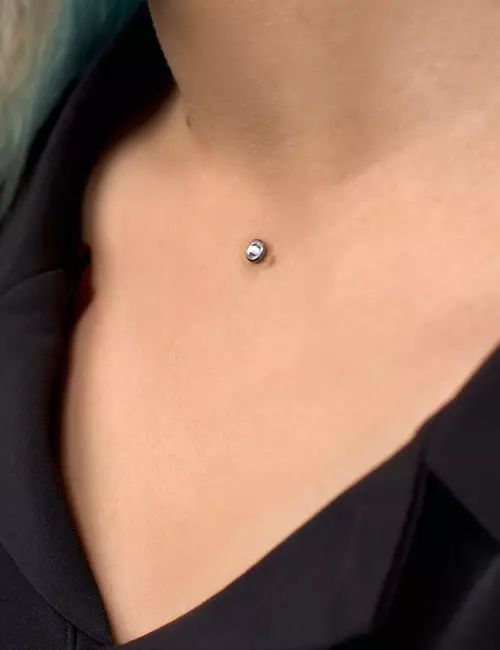
A sternum dermal piercing involves implanting a single anchor beneath the skin’s surface, with the jewelry appearing to float on the skin. This style offers a minimalistic and modern look, with the jewelry seemingly emerging directly from the sternum. Sternum dermal piercings provide a subtle yet elegant form of body adornment. In this type, one may experience mild and manageable pain that subsides gradually.
Anecdotal evidence suggests that vertical sternum piercings tend to be the most painful due to the sensitivity of the area and the depth of the piercing. Horizontal sternum and sternal dermal piercings are generally considered less painful, with dermal piercing often being the least painful because it doesn’t involve piercing through the full thickness of the skin. However, it still depends on your individual pain tolerance and the skill of the piercer.
Although there are many types of sternum piercings, the cost of each only varies slightly. Check out the section below to know more.
What Is The Cost Of A Sternum Piercing?
The cost of a sternum piercing generally falls within the range of $50 to $120. The variation in pricing is influenced by factors such as the geographical location of the piercing studio, the skill and experience level of the piercer, the type of jewelry selected, the exact placement of the piercing, and any supplementary services, such as providing aftercare products. Vertical and horizontal sternum piercings may cost more compared to a sternum dermal piercing since they require two holes.
Sit for a proper consultation with your chosen piercer at the respective piercing studio and inquire about a precise cost estimate tailored to your individual preferences. Investing in high-quality materials and the expertise of an experienced piercer ensures not only an aesthetically pleasing result but also a safer and more comfortable overall piercing experience.
Though the cost of each type of sternum piercing varies, the procedure remains the same for all three. Read through the section below to get an idea about how a sternum piercing is done.
How Is A Sternum Piercing Done?
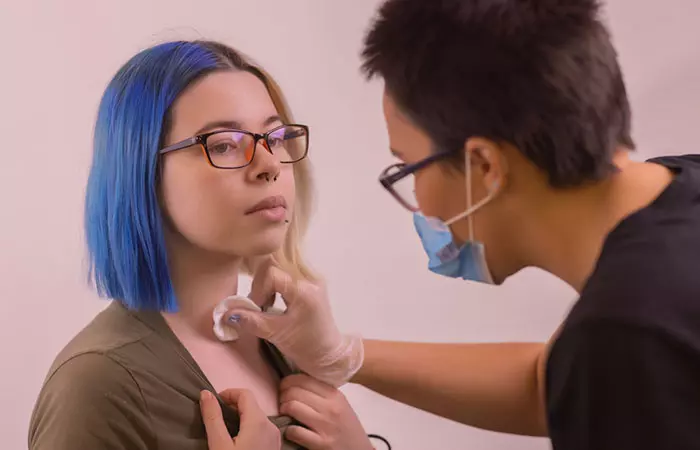
Here is what you can expect during the piercing process:
- The piercer begins by cleaning the sternum area and their hands to create a sterile environment. Sterile gloves are worn to ensure hygiene.
- The selected jewelry, often a barbell, undergoes thorough sterilization to reduce the risk of an infection. You can pick your desired jewelry
- based on preference and piercing type.
- The piercer then marks the desired location on the sternum using a surgical marker. This helps them and you visualize the piercing placement.
- If you have a low pain threshold, you can ask for a numbing agent, such as a cream, to help relieve the discomfort or pressure you may feel.
- The piercer then uses a sterile needle to create a piercing on the skin covering the sternum.
- The chosen jewelry is inserted through the piercing opening. The piercer ensures the jewelry is securely fastened, possibly adding threaded ends or beads.
- The piercer checks the placement, security, and alignment of the piercing.
- They finally clean up your new piercing and may even bandage in certain cases to ensure the wounded skin heals well during the first 2-3 days.
Once the sternum procedure is done, you may be wondering about how long it exactly takes for the skin to heal. Scroll down to the section below to learn more.
Sternum Piercing Healing Time
The healing time for a sternum piercing can vary from person to person, typically taking anywhere from 6 to 12 months. However, individual factors such as adherence to proper aftercare tips, overall health, and lifestyle choices can influence the healing process. It is crucial to follow aftercare instructions and avoid excessive movement or irritation of the piercing. Consult your professional piercer a few days after the procedure to ensure that your skin is healing properly and be attentive to your body’s signals to contribute to a successful and comfortable healing experience.
 Pro Tip
Pro TipProper aftercare can effectively accelerate the healing time of sternum piercings. Check out the section below to know more.
Sternum Piercing Aftercare
of your sternum piercing is very important for a hassle-free healing journey (1):
- Clean the sternum piercing every day with a gentle saline solution or a mild, unscented, antibacterial soap to keep infections at bay.
- Apply any ointment or moisturizer recommended by the piercer to aid the body’s healing process.
- Avoid wearing tight clothes as they can snag or tug the piercing, leading to minor cuts that delay the healing process.
- Do not use products with harsh chemicals or alcohols around the area as they can be a bit irritating and drying for the pierced skin.
- If possible reduce your body movements and avoid any pressure being applied to the area.
- Avoid swimming pools, hot tubs, and baths until your sternum piercing heals. These can expose your piercing to bacteria.
- Resist the urge to touch or twist the jewelry. It keeps things bacteria-free. Twisting the jewelry can cut the skin while it is still in its healing phase.
- Do not forget regular check-ins with your piercer to make sure everything is on track.
- Also, stay hydrated and follow a well-balanced healthy diet as they help your body heal faster.
 Pro Tip
Pro TipAs healing times vary, be patient and stick to your aftercare routine for a safe sternum piercing experience. Proper aftercare is extremely important for minimizing various risks associated with sternum piercings. Check out what are the side effects of sternum piercings in the section below.
Side Effects Of Sternum Piercing
- May Increase Infection Risk
Sternum piercings, though trendy, carry the risk of infection. The major causes include bacterial exposure, improper aftercare and using unclean tools (2). Symptoms of infection include green smelly discharge, itching or a hot feeling near the piercing. To minimize this risk, adhere to aftercare practices and inspect the area regularly to check for signs of infection, including regular cleaning with a mild saline solution or soap.
- May Cause Scarring And Keloids
While some scarring is a natural part of the healing process, excessive scarring can be a concern with piercings. Proper aftercare is vital to manage and reduce potential scarring. Keloid formation, characterized by raised scar tissue, is a rare side effect as well. Those prone to keloidsi Raised overgrowths of scar tissue that can develop at the site of a wound or injury, extending beyond the original boundaries of the affected area. should be particularly cautious and considerate of their body’s response to sternum piercings (3).
- May Pose A Risk Of Rejection
A possible side effect involves the body pushing the piercing out, known as rejection. Early detection of any discomfort or changes in the piercing are crucial to address rejection correctly. The signs of rejection include an increase in the size of entrance and exit holes, movement of the jewelry from the original place, and hanging or drooping of the jewelry.
- Increased Chance Of Migration
Another potential side effect is migration, where the piercing shifts from its initial placement. This emphasizes the need for careful monitoring of the new piercing.
- May Cause Nerve Damage
In rare cases, sternum piercings may pose a risk of nerve damage (4). Professional piercing and careful aftercare practices are essential to minimize this potential side effect.
To minimize these side effects and discomfort, special care must be taken in choosing the jewelry you add to your new sternum piercing. There are many dermal body jewelry styles you can choose from. Check out the section below to know more.
What Type of Jewelry Is Used For A Sternum Piercing?
- Surface Bars
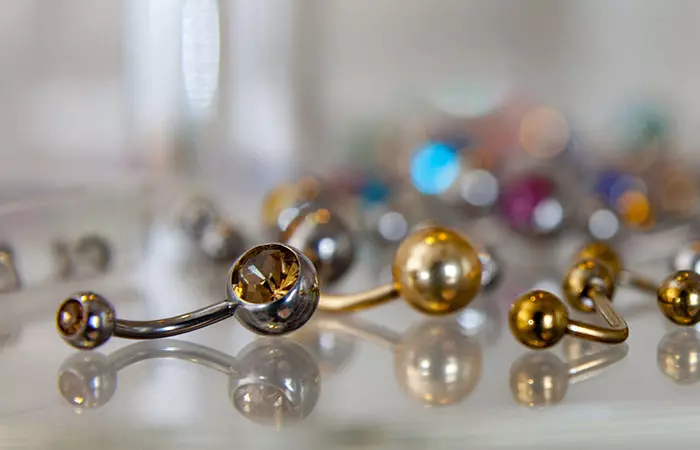
Commonly used for sternum piercings, surface bars are designed to lie flat against the skin, providing stability and minimizing the risk of irritation.
- Barbells
View this post on Instagram
Straight or curved barbells are popular choices, offering simplicity and versatility for sternum piercings.
- Circular Barbells
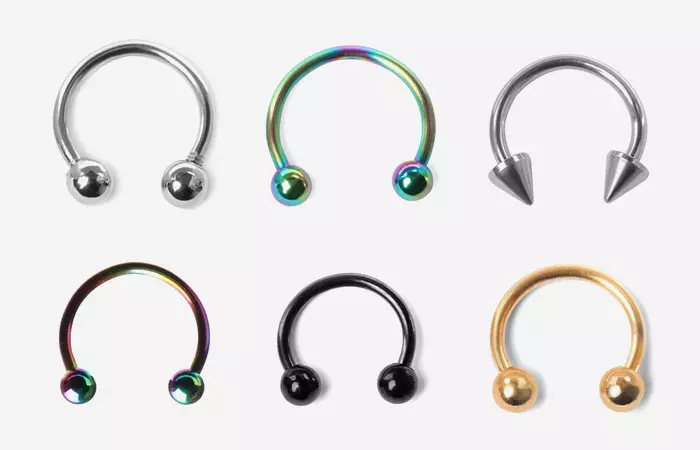
Circular barbells, also called horseshoe rings, add a unique aesthetic and provide a comfortable fit.
- Captive Bead Rings
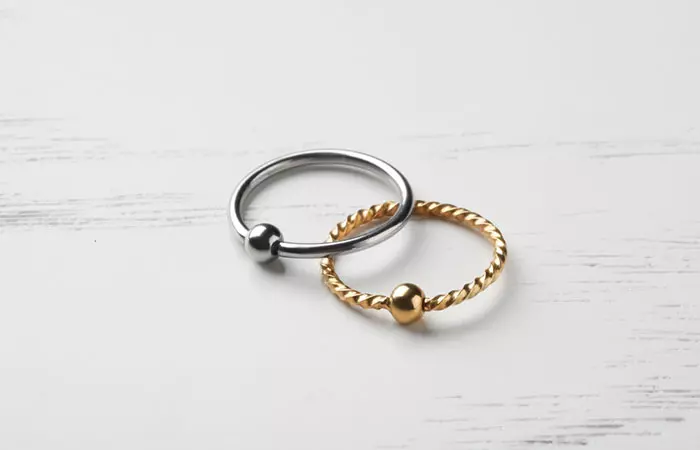
Captive bead rings consist of a hoop with a removable bead, offering a classic and stylish option for sternum piercings.
- Surface Anchors
View this post on Instagram
Surface anchors, also called microdermals or single-point piercings, involve a small base with an exposed decorative top, creating a subtle and modern look for sternum piercings.
Although all these dermal body jewelry styles offer a unique bold look, giving you the freedom to make an edgy fashion statement, extreme care must be taken while choosing their material. Check out the section below to know about various materials that are suitable for sternum piercing jewelry.
What Jewelry Material Is Used For A Sternum Piercing?
Here are the types of metals commonly used for piercings (5):
- Titanium
Titanium is a popular choice for sternum piercings owing to its hypoallergenici Reduced potential to cause allergies, making it suitable for individuals with sensitive skin or prone to allergic reactions. property that reduces the risk of allergic reactions and irritation.
- Surgical-Grade Stainless Steel
Another common material, surgical-grade stainless steel is durable and resistant to corrosion, making it suitable for sternum piercings.
- Niobium
Similar to titanium, niobium is a hypoallergenic option, often chosen for its biocompatibility in sternum piercings.
- Gold
Gold is also chosen by a few for sternum piercing. However, if you want to try gold, make sure it’s of good quality to minimize any undesirable outcomes.
These are generally used materials for piercings. However, it is advised to perform a patch test to rule out any allergic reactions.
Additionally, it is recommended to avoid certain jewelry materials known to trigger allergic reactions such as nickel, as they can hinder the healing process and cause more complications.
There’s no denying that sternum piercing definitely adds a unique factor to your look This bold and edgy piercing sits right on the center of the chest, allowing you to flaunt your wild personality. Despite its unique charm, sternum piercings do come with the risk of scarring, infection, and even nerve damage. Therefore, it’s important to consult an experienced piercing professional and get it done by them. Also, you must follow the aftercare instructions diligently to ensure your piercing heals properly and doesn’t impact your health and the final look.
Frequently Asked Questions
How to change out a sternum piercing?
To change a sternum piercing, start by thoroughly washing your hands with soap. Next, sterilize a pair of forceps or tweezers using rubbing alcohol. Gently remove the existing jewelry, taking care not to irritate the piercing. Then, carefully insert the new jewelry into the piercing hole. Remember to consult your piercer for guidance, especially if it’s your first time changing the jewelry after the piercing has fully healed.
What’s the difference between a surface and a dermal sternum piercing?
The main difference between a surface and a dermal sternum piercing lies in placement: a surface piercing is through the skin surface, while a dermal anchor has a single point in the skin, both require proper wound care to avoid complications.
A youtuber named KaptainKootie has got sternum piercing and shared her experience in a youtube video. She says if one has dry skin, it takes time for the piercing to heal. Check out her detailed experience, after care tips and how she changed her routine to accelerate the process. Click the video below to know more.
Personal Experience: Source
StyleCraze's articles are interwoven with authentic personal narratives that provide depth and resonance to our content. Below are the sources of the personal accounts referenced in this article.
(i). The Sternum Piercing Saga
https://meanderingentertainer.wordpress.com/2008/02/29/sternum-piercing/
References
Articles on StyleCraze are backed by verified information from peer-reviewed and academic research papers, reputed organizations, research institutions, and medical associations to ensure accuracy and relevance. Read our editorial policy to learn more.
- Suggested Aftercare For Body Piercings
https://safepiercing.org/aftercare/ - Body Piercing Infections
https://www.ncbi.nlm.nih.gov/books/NBK537336/ - Complications of Body Piercing
https://www.aafp.org/pubs/afp/issues/2005/1115/p2029.html - Body piercing: complications and prevention of health risks
https://pubmed.ncbi.nlm.nih.gov/22175301/ - Body Piercing
https://www.ncbi.nlm.nih.gov/pmc/articles/PMC1496593/
Read full bio of Rodrigo Casco
Read full bio of Sangita Goel
Read full bio of Anjali Sayee
Read full bio of Shreya Mukherjee





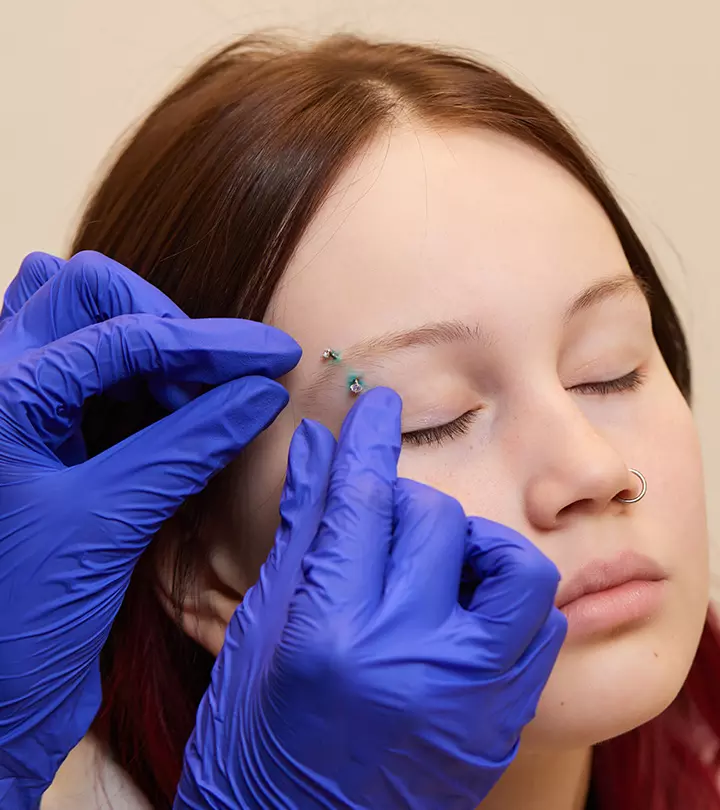

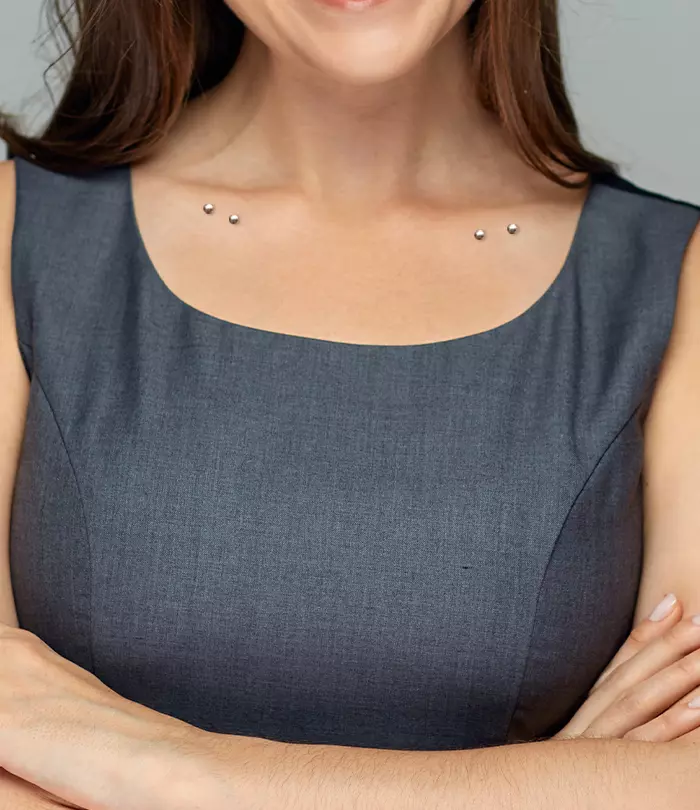
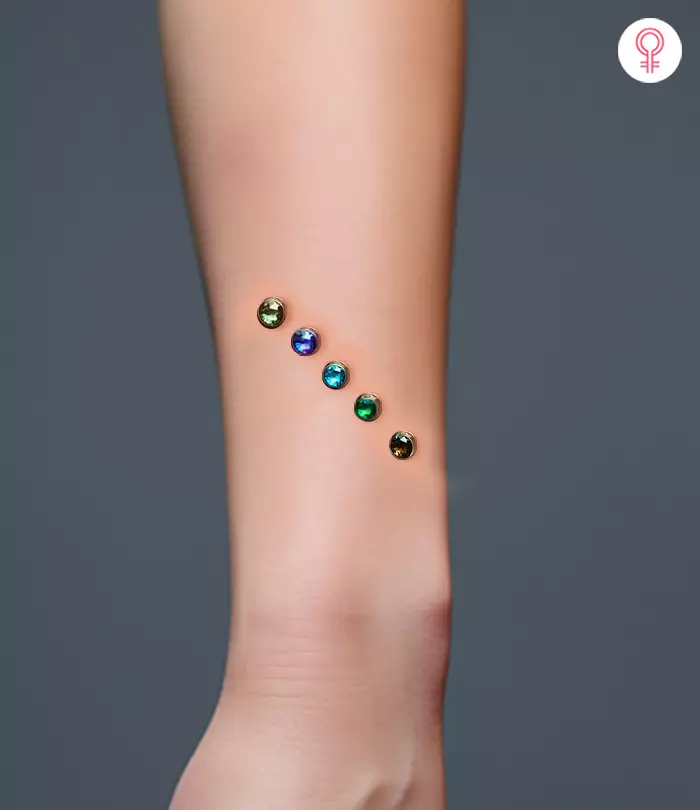

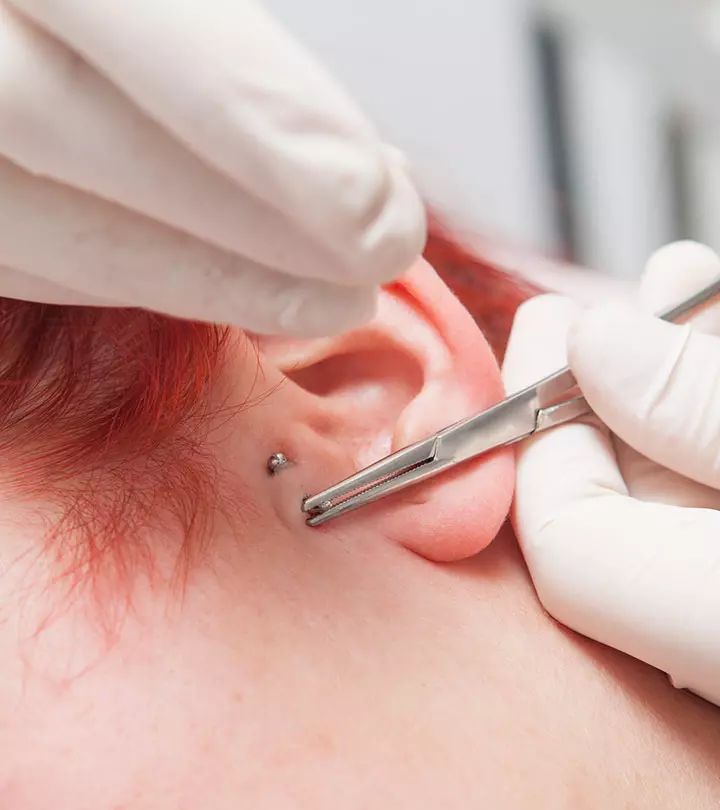

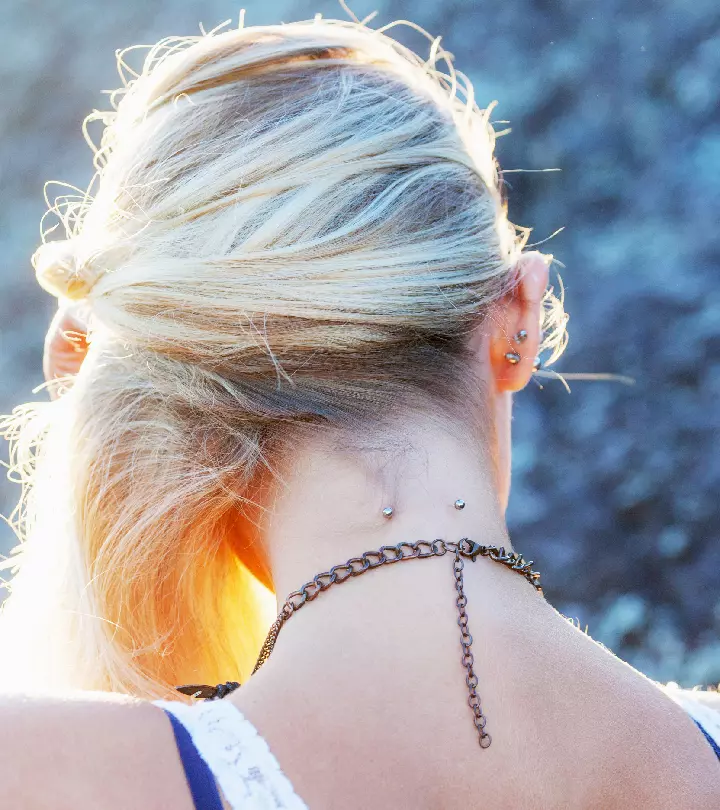
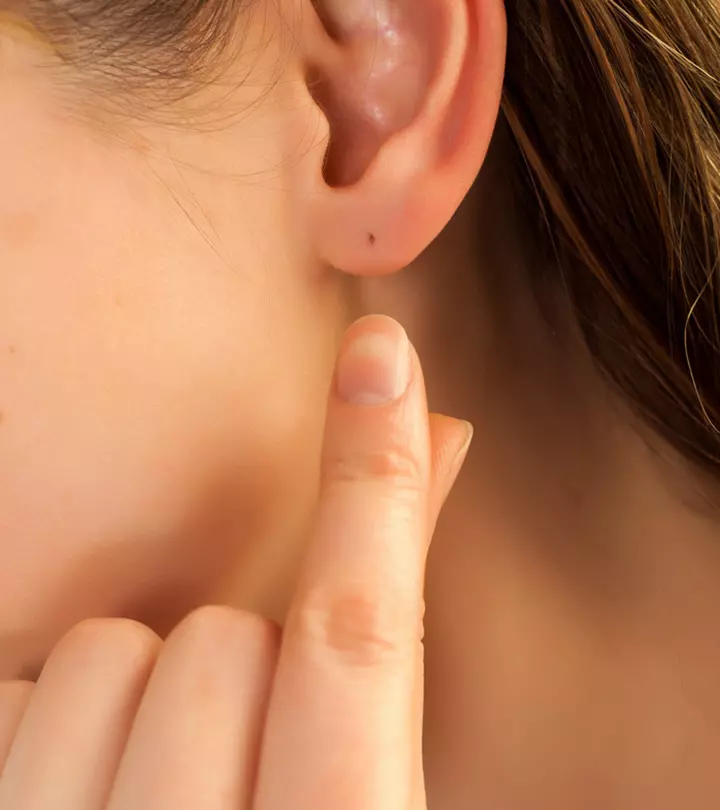

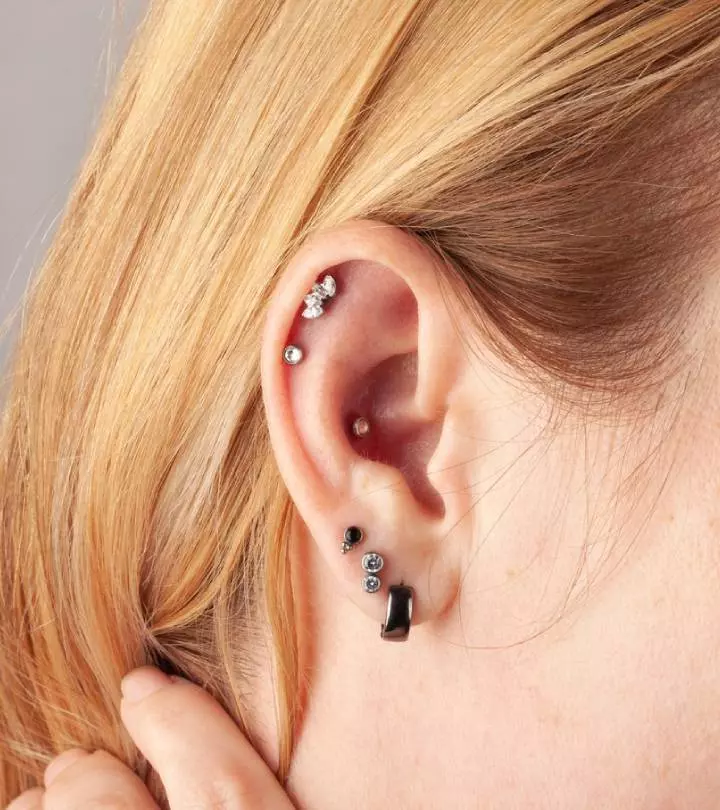
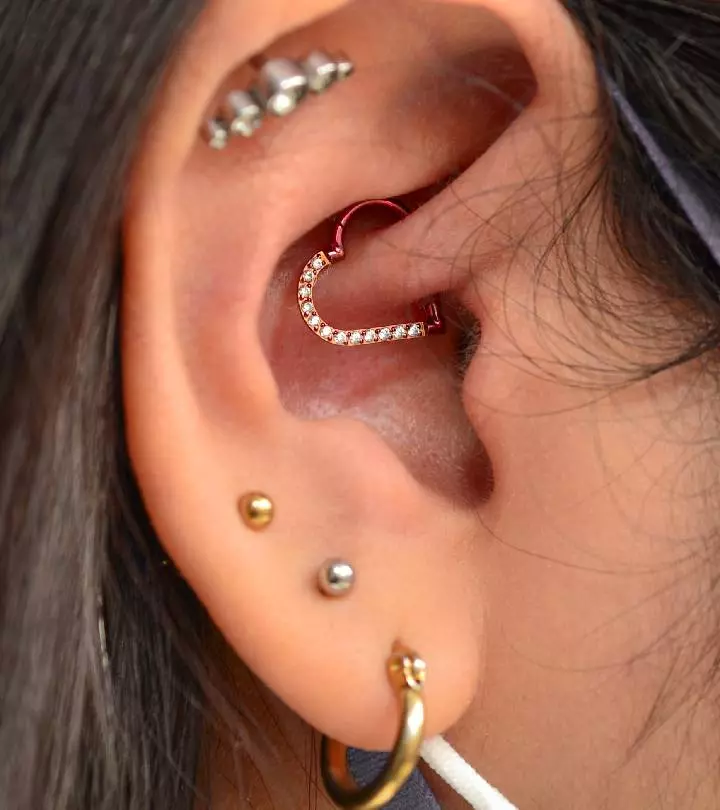



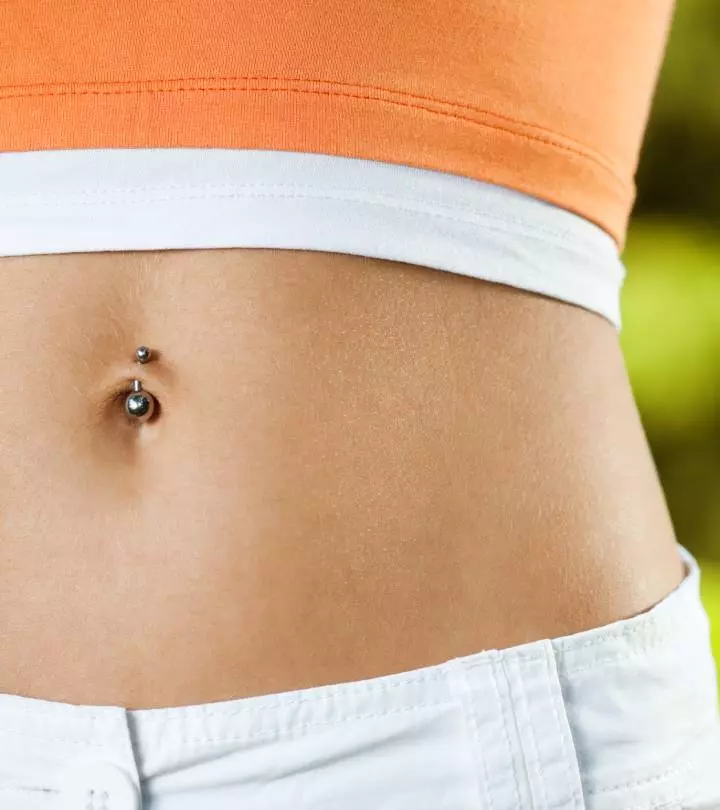
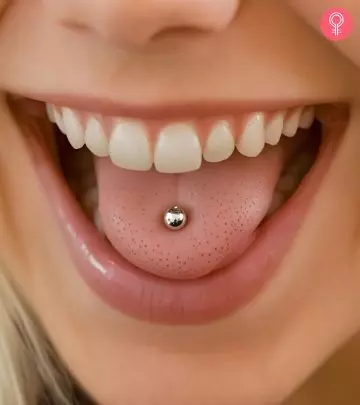

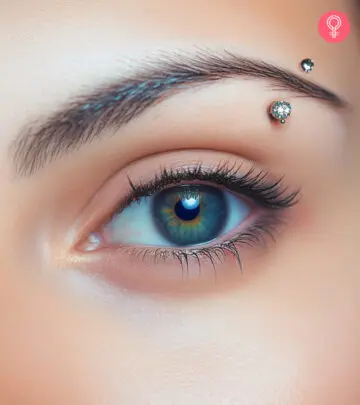

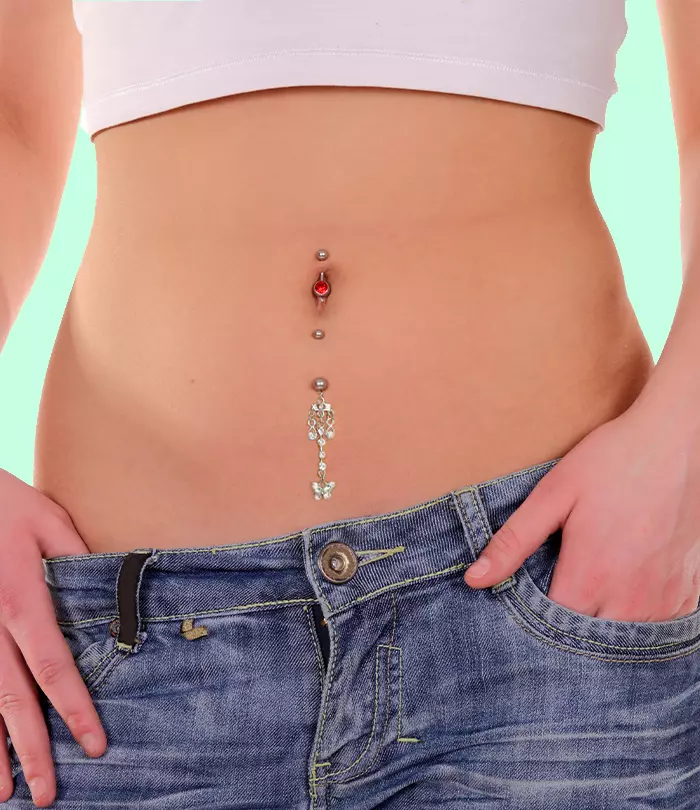
Community Experiences
Join the conversation and become a part of our empowering community! Share your stories, experiences, and insights to connect with other beauty, lifestyle, and health enthusiasts.